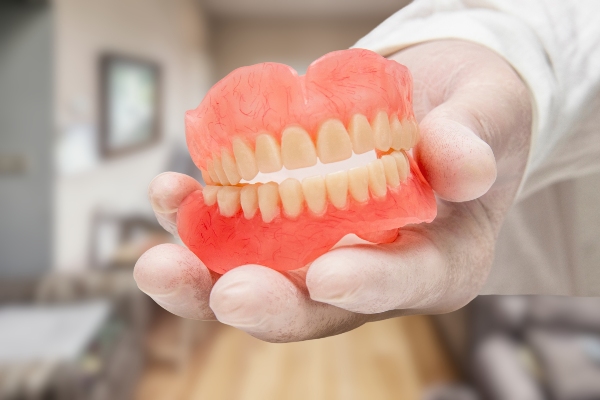Improve Your Oral Health with Endodontics Treatment

The dental specialty that focuses on the tissues inside your tooth and around your tooth roots is called endodontics. Endodontic treatment, which is more commonly known as root canal treatment, can improve your oral health by keeping the tissues inside your teeth healthy and saving teeth that might otherwise be lost.
Root canal treatment
The nerves of teeth may become irritated, infected, or inflamed because of extensive decay, large fillings, cracks, chips, or multiple dental procedures. A root canal is an endodontics treatment dentists use to treat teeth that are severely decayed or infected with the goal of preventing the need for extraction.
During a root canal procedure, the dentist removes the pulp and nerve of the tooth and then cleans and seals the inside of the tooth. You may need a filling or crown to cover the affected tooth after this procedure. Endodontic treatments help prevent the tissue surrounding the tooth from becoming infected and forming an abscess. Removing the tooth's nerve does not impact the function of your tooth.
Benefits of root canal treatment
Endodontic treatments help preserve the natural tooth and avoid unnecessary extractions. When patients can save their natural teeth, it improves the appearance of their smiles, makes it easier to eat and chew, and reduces the need for additional dental work. This is why dentists often consider every restorative option, including root canals, before recommending an extraction.
Most patients experience minimal pain during root canal treatment and many have less discomfort while recovering from the procedure than while recovering from a tooth extraction. Additionally, the treatment may require fewer dental visits and save the patient money because there is no need to replace the extracted tooth with an artificial tooth.
Reasons a root canal may be needed
When the pulp or nerve tissue of a tooth is damaged, it degrades, and bacteria may grow in the pulp chamber. This bacteria, along with debris inside the tooth, may cause an infection or abscess. An abscess is a pocket that forms near the roots of the tooth and fills with pus. Abscesses occur when an infection spreads beyond the roots of teeth. These infections may cause swelling of the neck, face, or head. They can also lead to drainage issues that may cause holes in the sides of teeth that drain infected fluids into the gums, cheek, or skin. The infection may lead to bone loss at the tips of roots.
Signs that you may need a root canal
You may need endodontic treatments if you have one or more symptoms:
- Lingering tooth sensitivity, particularly to cold or heat
- Pimples on the gums
- Painful or swollen gums
- Sharp pain when biting or chewing
- Cracked or chipped teeth
- Darkened gums or deep decay
Root canal recovery
Most people can return to normal activities the same day as a root canal treatment. Your tooth may be sensitive for a few days after the treatment. Over-the-counter pain relievers may help. Avoid chewing with the affected tooth until after the permanent filling or crown has been placed to help keep the area clean and reduce the chance the tooth could break before the restoration is complete. Follow your regular oral hygiene routine and rinse with an antiseptic mouthwash.
Potential complications
Sometimes new infections occur after a root canal procedure. This usually happens because the patient has a larger number of root canals in a tooth than expected. It may also happen because of an undiscovered crack in the tooth root or a problem with the restoration that resulted in bacteria entering the inner tooth. Additionally, the sealing material applied during the procedure may deteriorate over time, which allows bacteria to enter the inner tooth. When complications happen, repeating the root canal may resolve the problem. However, sometimes other treatments may be needed to preserve the tooth.
Avoiding root canal treatments
The primary cause of conditions that lead to the need for root canal treatment is tooth decay. Maintaining a proper oral hygiene routine and seeing your dentist regularly can help you avoid tooth decay. Brush your teeth a minimum of twice per day and floss once per day. Wear a mouthguard when participating in sports that could result in oral injuries. If you have any concerns about your oral health, make sure to address those concerns with your dentist right away.
Conclusion
Endodontics treatments can help patients save their natural teeth, which has numerous benefits when compared to tooth extraction. Your dentist can help you choose the most appropriate treatment for your dental issue.
Request an appointment here: https://brimhalldentalgroup.com or call Brimhall Dental Group at (661) 249-1122 for an appointment in our Bakersfield office.
Check out what others are saying about our services on Yelp: Endodontics in Bakersfield, CA.
Recent Posts
Implant dentists restore the appearance, function, and oral health of patients' smiles by replacing missing teeth. What makes implant dentistry unique is the use of dental implants, which are essentially artificial tooth roots that hold replacement teeth securely in the proper permanent position.Many have heard of implant dentistry but are not entirely familiar with what…
A dental implant is the closest you can get to a real tooth. It is placed in the jaw in a minor surgical procedure. Inside the jaw, the implant fuses with the surrounding bone tissue and takes over some of the functions that were performed by the root of the missing tooth. This is to the…
More and more people are considering dental implants surgery these days in order to replace teeth that are missing. While the procedure is relatively straightforward, invasive surgery is required to efficiently place the implants. It is helpful to be aware of the pre-op instructions for the procedure.Patients who are considering dental implants or have surgery scheduled…
Dentures are a popular teeth replacement solution that can improve the function and appearance of your smile. They are designed to look like natural teeth and consist of different materials, such as acrylic and metal. Whether you are new to dentures or have been wearing them for years, it is important to properly care for…


